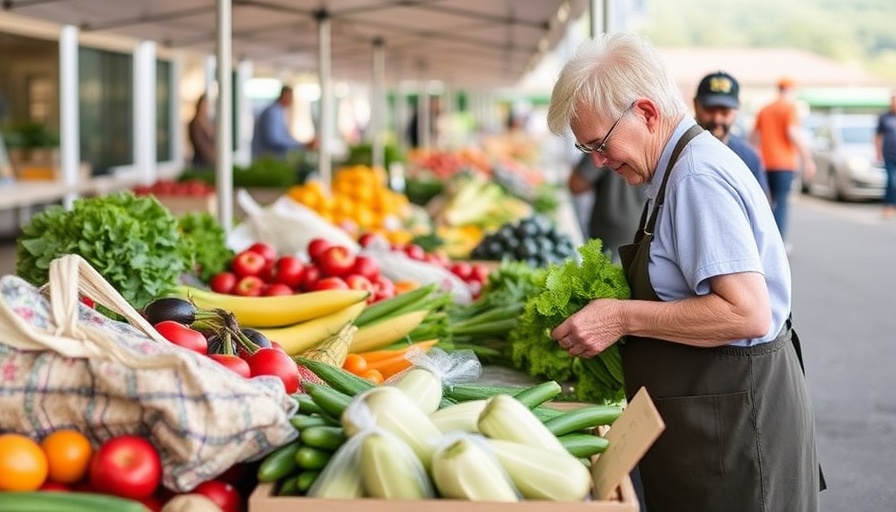
Ohio Seniors Can Benefit from Local Produce Programs
In Ohio, a unique initiative is changing the landscape of health and nutrition for older adults living on fixed incomes. Many seniors may not be aware of the Ohio Senior Farmers Market Nutrition Program, which offers eligible participants $50 in benefits to spend on fresh produce at local farmers' markets. This program is a crucial lifeline for seniors, helping them access affordable, nutritious foods while supporting local economies.
Who Qualifies and How to Apply
To qualify for this beneficial program, applicants must be Ohio residents aged 60 and older with specific income thresholds. For instance, a single-person household must have an annual income of $28,952 or less to qualify. This highlights how the program addresses the needs of those who might otherwise struggle to afford healthy food options.
Applying for the program is straightforward. Interested seniors can visit the Homegrown Benefits website, where they will complete a brief income questionnaire. Once approved, they receive either a QR code or a card to spend directly at participating farmers' markets. This direct access to fresh foods can dramatically improve seniors' diets and overall health.
The Importance of Fresh Produce for Seniors
Much like Neal Sackenheim, a participant in the program, many seniors opt for farmers' markets because they provide not only fresh produce but also local quality and community engagement. Regular consumption of fruits and vegetables is linked to numerous health benefits, particularly vital for seniors who must manage chronic conditions often exacerbated by poor nutrition.
Organizations like the Council on Aging emphasize that the program is essential for older adults, ensuring that this population has the opportunity to consume seasonal, nutritious foods. In addition, research shows that access to fruits and vegetables can reduce the risk of many diseases, thus aligning the program with public health goals.
Aging Population: A Demand for Healthier Options
As Ohio’s population ages, the demand for accessible nutritional options increases. The $50 benefit provided by this program serves not only as a financial aid but also as an encouragement for healthier eating habits among seniors. It recognizes that many older adults do not have easy access to grocery stores that carry fresh produce, making it imperative to bring these options directly to community-centered locations.
Future Trends in Senior Nutrition
Programs like the Ohio Senior Farmers Market Nutrition Program pave the way for future initiatives focused on public health and well-being for seniors. As aging demographics increase, policies that integrate health convenience into local community resources will likely gain prominence. Moreover, similar programs around the country are learning from Ohio’s approach to bolster food security and nutritional health among older adults.
Supporting Local Economies
In addition to helping seniors, the program also supports local farmers and cultivates community engagement. When seniors spend their benefits at local markets, it stimulates the local economy and strengthens the bond between consumers and producers. This dual benefit highlights the interconnectedness of community well-being and individual health.
Planning Ahead: Important Dates
For those interested in participating, it's crucial to be aware of the program's deadlines. Applications must be submitted by September 30, 2025, and the benefits need to be spent by November 30, 2025. Those unable to access fresh produce through traditional grocery stores should consider applying as soon as possible.
Take Action to Maximize Benefits
Ohio seniors looking to secure their produce benefits are encouraged to act swiftly and take advantage of this program. For further assistance and personalized guidance through the benefits process, reach out to Terrijo Parker, W Michigan's specialist in senior benefits, at 1-571-6100. She possesses vast expertise that can aid seniors in making informed decisions about their healthcare and produce needs.
By capitalizing on such resources, seniors not only enhance their health but also contribute positively to their communities. This program is more than just a monetary benefit; it embodies a commitment to health equity and community support.
 Add Row
Add Row  Add
Add 




Write A Comment